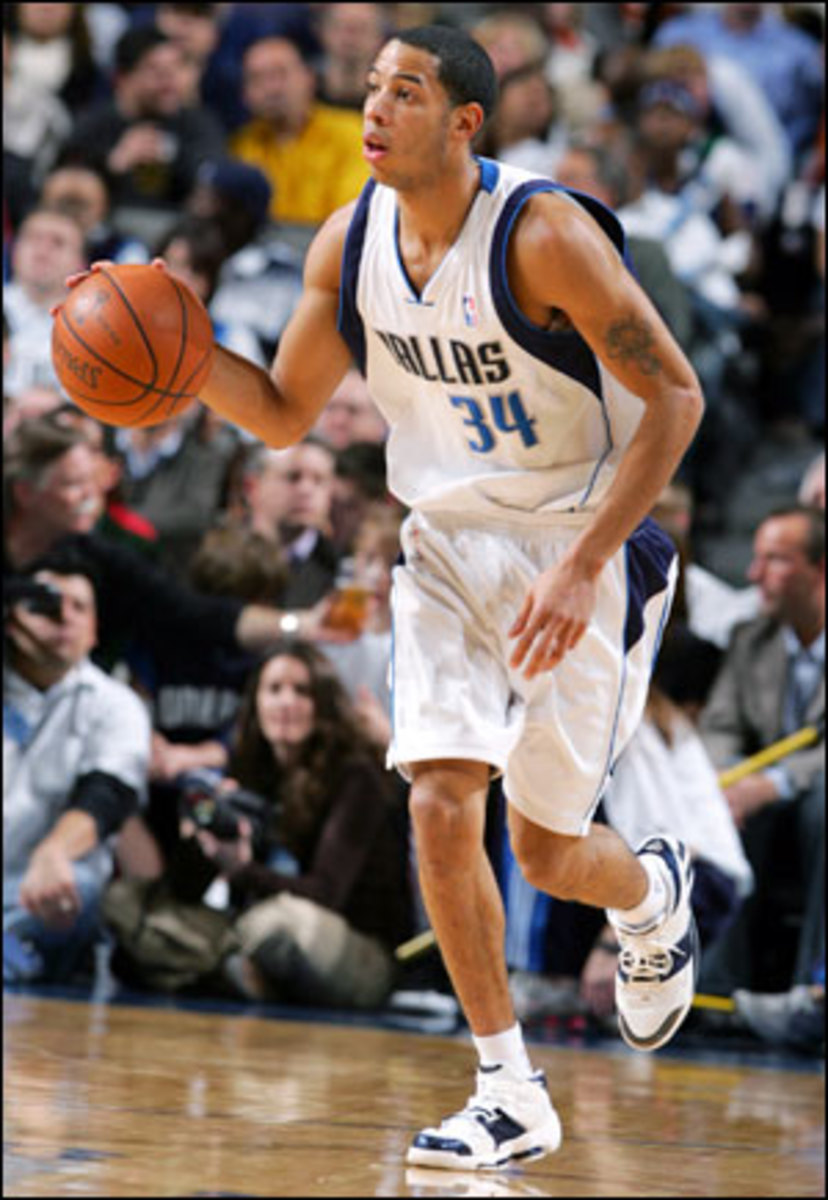Does this make sense?
When the Suns acquired Shaquille O'Neal last week, it was widely regarded throughout the league as a reactionary move to the Lakers' trade for Pau Gasol. True or not, you could at the very least argue the deal's merits: In O'Neal, Phoenix netted a formidable presence in the middle who, when healthy and on his game, could still be a dominant force.
If the Mavericks were to overcome Devean George's refusal to be part of the trade and eventually acquire Jason Kidd -- a front-office source said Thursday night that the two sides were discussing a revised deal in which New Jersey would receive Keith Van Horn in a sign-and-trade -- you likely would hear similar sentiments about how they only made the move to try to keep pace with their Western Conference rivals. Only this time, it would be tough to argue that the trade made much sense.
There is no denying Kidd's talents; the 34-year-old point guard is averaging 11.3 points, 8.1 rebounds and 10.4 assists this season. He is still a triple-double threat every night and runs the fast break just as well as former Mavericks point guard Steve Nash. With Kidd on board, the lives of Dirk Nowitzki and Josh Howard would get a whole lot easier.
But at what cost? While the Lakers surrendered virtually nothing for Gasol and the Suns took a calculated risk in dealing the disgruntled Shawn Marion, the Mavericks would have to gut their roster for Kidd. Let's examine the key players they were prepared to send to New Jersey before George blocked the deal:
Devin Harris: Long after Kidd has left the NBA, Harris will be dominating it. The 24-year-old Harris is averaging 14.4 points and 5.3 assists and shooting 48.3 percent from the field this season. He is already arguably the best defensive point guard in the league and few can match his speed (remember, in the 2006 conference semifinals against San Antonio, it was only after coach Avery Johnson inserted Harris into the starting lineup to defend Tony Parker did the Mavericks seize control of the series, which served as a springboard to the NBA Finals).
Harris can be a little reckless -- his assist-to-turnover ratio of 2.22 to 1 ranks 37th in the league -- but he is still developing: His scoring and assists have improved in each of his four seasons. If the term "mortgaging the future" ever applied, it would be here.
DeSagana Diop: The 7-footer easily would be the Mavericks' most crippling short-term loss. Why? Consider Dallas' main competition in the West. There is San Antonio, which still has the best big man in the game in Tim Duncan, followed by Phoenix (O'Neal) and the Lakers (Andrew Bynum, Pau Gasol). Continue down the list and you have New Orleans (Tyson Chandler), Denver (Marcus Camby) and Houston (Yao Ming).
With Diop gone, who would be Dallas' last line of defense?
Erick Dampier.
Yes, the same Erick Dampier who seems to enter games with two fouls against him. On Dampier's best day he is a 25-to-30-minute player, leaving nearly a full half for the Mavericks to find an alternative at center. The post-trade roster would lack a backup center, so barring another deal Dallas would either have to exhume Kevin Willis again or get used to the idea of Nowitzki spending a significant amount of time in the pivot.
Jerry Stackhouse: Several published reports suggest that if the trade were to happen, the Nets would buy out Stackhouse, who then would return to the Mavericks. I've heard the same thing in conversations with league sources, but I don't think this would be a slam dunk.
First, even though the Nets would be dealing away their franchise player, they wouldn't be waving the white flag on the season. The Nets, currently tied for seventh in the Eastern Conference, could be interested in keeping a veteran playoff performer like Stackhouse for the stretch run. Second, if Stackhouse were to seek a buyout, he and New Jersey would have to agree to a settlement on the roughly $17 million he is owed over the next 2½ seasons.
Finally, there are no guarantees Stackhouse would return to Dallas. By league rule, Stackhouse would have to sit out 30 days following the trade before he could re-sign with the Mavericks. Before George held up the deal Wednesday night, Stackhouse told the The Associated Press that he "ain't going anywhere," but that feeling may change once other teams start courting him.
Don't you think a number of teams would be lining up to secure the services of a tough, physical swingman who can get to the free-throw line? How about the Pistons, for whom Stackhouse played five of his best seasons? Or the Celtics? Don't rule out the Spurs, Lakers or Suns making a bid, if for no other reason than to keep him away from the Mavericks. If Stackhouse were to change his tune, Dallas' depth would take a serious hit.
On the flip side, it is easy to see why this trade would make sense for New Jersey, which is stuck in the middle of the East pack with an unhappy Kidd. In Harris, who in September signed five-year, $42.6 million contract extension that kicks in next season, the Nets would get a young point guard to team with small forward Richard Jefferson, 27, and talented center Nenad Krstic, 24, who is trying to come back from knee surgery.
It also could be just the first domino to fall. With Kidd gone, there would be no reason to hang on to Vince Carter, who at 31 won't be part of any rebuilding effort. The Nets would have trouble now creating a market for Carter, who is in the first season of a four-year, $61.8 million contract. But that market could expand in the offseason when some teams reevaluate whether they could use a scoring swingman who can still sell a few tickets.






